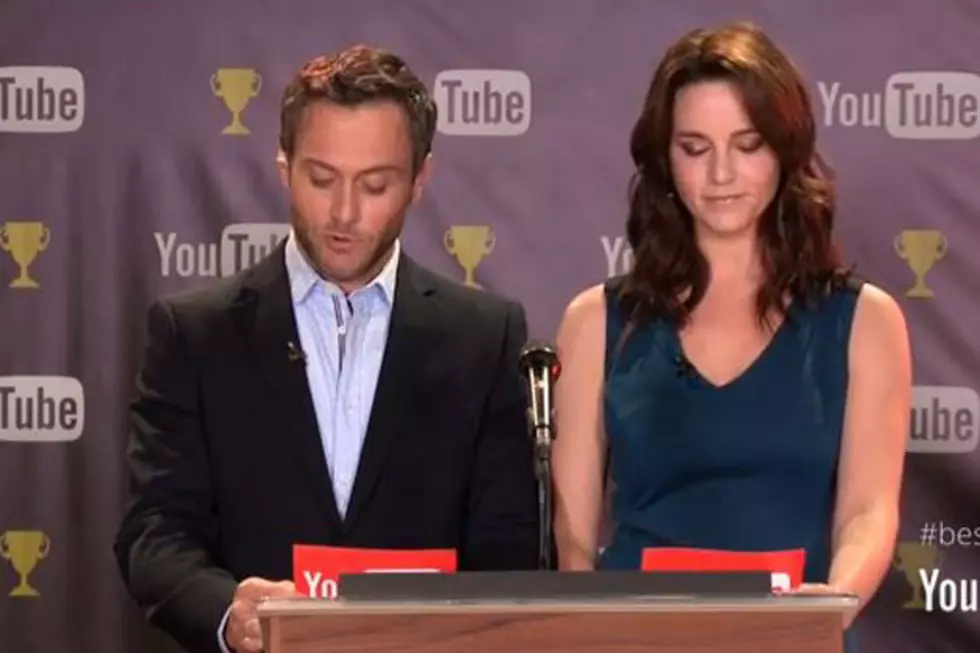
10 Things You Didn’t Know About April Fool’s Day
Every year on April 1st, office water coolers are spiked with white wine and computer mouses are glued to desks. Every year on college campuses, half empty buckets of water are placed on the top of dorm room doors and passed out bros are covered with marker ink. And throughout the world, the sound of chuckling and cackling can be heard echoing across its borders.
April Fool’s Day may be full of pranks, tricks and gags every year, but their origins and traditions have become a bigger mystery than the identity of the person who left the flaming bag of dog poop on your doorstep. Here are the few things we do know about the holiday and some of the most famous pranks in history, which may or may not be elaborate April Fool’s pranks themselves.
1. No one knows how it started
Many nations and cultures have their own traditional day of good-natured joking dating back to the turn of the century, but not a single one of them can be called the definitive inspiration for America’s April Fool’s Day. According to Snopes, the most prevailing theory is that the day was created when the Western Hemisphere switched from the Julian calendar to the Gregorian calendar in the 1500s, effectively moving the start of the year from March 25th to Jan. 1st. This caused some pranksters to trick others into believing it was a new year at the start of April. So far, that’s only a theory. Historians haven’t been able to pin a definitive origin down yet.
2. The holiday’s name mostly like came from a French holiday called “April Fish”
There is also several prevailing theories about how the holiday got its name, but one of the most popular comes from France. According to ‘The Dictionary of Word Origins,’ the French celebrate a different version of the holiday. Pranksters tried to play tricks on their friends by sticking a picture of a fish on their backs and yelling “Poissons d’avril!,” which means “April fish” in English.
3. The man who invented almost every novelty gag in history turned down one of the biggest: the Whoopie cushion
Just about every gag you could possibly get hit by or with on April 1st came from the mind of one man. Soren Sorensen Adams, better known as “Sam,” came to America from Denmark in the 1900s and later found work as a coal-tar product salesman. He found that one of the powders he used in his work could make people sneeze when blown in their face, something that many people found amusing. He started selling “Cachoo Powder” and made $150,000 off it. His success led to the creation of other practical joke staples such as the dribble glass, the joy buzzer and the springing snakes in a can. However, Adams actually turned down the rights to sell the Whoopie cushion in 1930 because he thought, “The whole idea seemed too indelicate.” Adams’ descendants bought the rights to an electronic Whoopie cushion 60 years later.
4. The CIA tried to kill Fidel Castro with an exploding cigar
The CIA’s attempts to trick Cuban dictator Fidel Castro were more than just a series of fun practical jokes — they were downright fatal. The attempts started in the 1960s when Attorney General Robert Kennedy oversaw a secret program with the help of the justice and defense departments that started a long series of suggested attempts to unseat Castro with some very ‘Looney Tunes’-esque schemes.
Agents tried blowing Castro up with an explosive conch shell during one of his many scuba diving trips and attempted to ruin his reputation with his people by making his famous beard fall out by placing a special powder in his shoes. The most famous was by booby trapping his trademark cigars, first by poisoning one and then by planting an explosive device in another. Neither plan worked, nor did the 636 other plans suggested by the secret task force.
5. The original recipe for fake vomit is a closely guarded secret
One of the biggest mysteries for April Fool’s aficionados, other than how the day itself came to be, is the first and original recipe for the novelty classic the plastic pile of fake vomit. The company that created it has filed it away under lock and key for more than 60 years.
Fake vomit was first sold in the 1950s by Irving Fishlove, the son of the owner of the Chicago gag company H. Fishlove & Co. The recipe either came from the toy mastermind Marvin Glass, who also created games such as Mouse Trap and Rock ‘Em Sock ‘Em Robots, or one of Glass’ employees who presented it to him but thought the idea was too disgusting to sell. The employee refused to give up on the idea and decided to take the gag item to the boardroom by bursting into a meeting and plopping down the latex barf on the table, causing Fishlove to laugh and Glass to change his mind. The original recipe is hidden in Fun Inc’s headquarters on Chicago’s West Side.
6. Johnny Carson kept a rubber chicken and a gag arrow behind his desk for almost the entire run of ‘The Tonight Show’
The king of late night comedy was a master of dealing with a bombed sketch or a bad joke, partly because he kept a reminder of his failure behind the most famous desk in television history. Author and biographer Bill Zehme did one of the last profiles on ‘The Tonight Show’ host 10 years after his infamous exit from television. He took a tour of Carson’s office and spotted an “old disintegrating rubber chicken…and a wooden arrow” in a Plexiglass case. These props came from a very early ‘Tonight Show’ sketch about General Custer that didn’t get many laughs, so Carson kept them behind his desk “as a private irony check.”
Johnny’s sidekick Ed McMahon wrote in his memoir ‘Here’s Johnny!’ that he also used these props as a last resort for an easy laugh if the audience began to die down, but ,“Johnny’s chicken rarely made an appearance because he had an unerring instinct for how to get a laugh. I never met a better judge of comedy or a more honest one.”
7. The Seattle sketch comedy show ‘Almost Live!’ made viewers believe that the Space Needle collapsed
One of the longest-running sketch comedy shows in the country actually aired on local television. ‘Almost Live!’ aired on KING-5 in Seattle, WA from 1984 to 1999 and continued with reruns until 2006, earning it a cult following that continues to this day. One of their less memorable episodes aired in 1989 on April Fool’s Day and featured a joke that a lot of people didn’t find very funny.
During the show’s opening monologue, a fake news broadcast cut into the program featuring a very real-looking news anchorman announcing that high winds had knocked over the Seattle landmark, the Space Needle. 911 dispatchers were clogged with phone calls, and the show’s host John Keister issued an on-air apology the following week.
8. A report about a loose python in Google’s headquarters on April 1st wasn’t an April Fool’s Day joke
As a company, Google has a long tradition of celebrating April Fool’s Day, both in their corporate offices and various web platforms. However, an emergency memo that just happened to go out to employees on April 1st was anything but a joke. A Google engineer’s 3-foot-long python named Kaiser got loose from its pen and wandered through the halls of the company’s New York offices.
The company sent out a memo warning people about the loose creature, but several wrote it off as a joke and company officials had to assure them it wasn’t. Thankfully, the snake was found and returned to its owner unharmed. The employee who found it may not have been so lucky.
9. A lot of people thought the murder of Marvin Gaye was an April Fool’s prank
While there are plenty of real things that happened on April 1st that people thought were just the product of some wise guy’s prank, few were more infamous or tragic than the untimely death of singer Marvin Gaye. Gaye’s abusive father shot and killed the singer on April 1st, 1984, in his home during a violent argument the day before his 45th birthday. Musician Stevie Wonder, one of Gaye’s close friends, received the news by telephone and thought someone was trying to pull a cruel April Fool’s prank on him. Four days later, he delivered the eulogy at his funeral.
Other musicians who weren’t yet famous would also experience the same confusing tragedy. Roots drummer Ahmir “?uestlove” Thompson recalled in an interview with Vibe Magazine that he heard the news from a cousin and thought it too was an April Fool’s Day joke until he watched the news later that evening.
10. The Scots and the French invented the “Kick Me” sign
Scotland’s April Fool’s Day is a bit longer than ours– two days to be exact. The second day is called “Taily Day” and involves sneaky pranks on a person’s posterior. According to the book ‘The Lore and Language of Schoolchildren,’ which was written back in 1959 to observe the play patterns and social habits of children, jokers would take strips of paper and stick them to another student’s backside and laugh as they walked away with a new tail. It is believed that this custom mixed with the “April Fish” tradition from France led to the “Kick Me” sign beloved by mischievous schoolchildren the world over.






